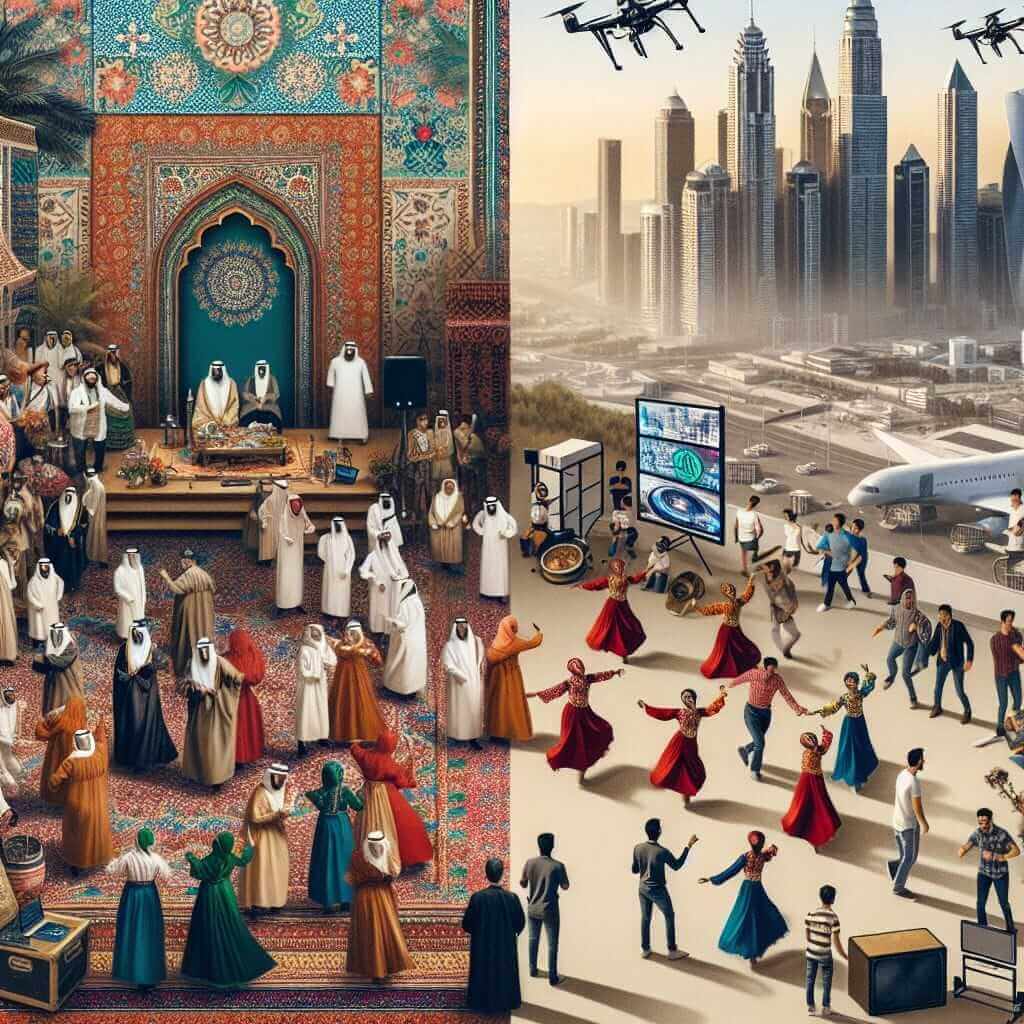Cultural heritage preservation is a topic that frequently surfaces in IELTS Writing Task 2, prompting test-takers to analyze the significance of safeguarding cultural assets for present and future generations. This essay will delve into the multifaceted importance of this topic, providing a sample answer to a typical IELTS question, along with valuable tips and vocabulary to enhance your writing skills.
Sample IELTS Essay Question
Many people believe that preserving traditional cultures is essential in our rapidly globalizing world. Others, however, argue that we should embrace change and focus on the future. Discuss both views and give your own opinion.
Analysis of the Question
This question presents a classic “discuss both views” format. You are expected to:
- Paragraph 1 (Introduction): Briefly introduce the topic and paraphrase the question.
- Paragraph 2: Discuss the first view (preserving traditional cultures is essential). Provide reasons and examples.
- Paragraph 3: Discuss the second view (embracing change and focusing on the future). Offer reasons and examples.
- Paragraph 4: State your opinion, clearly explaining and supporting your stance.
- Paragraph 5 (Conclusion): Summarize the main points and restate your opinion.
Sample Essay
In an era of unprecedented globalization, the significance of cultural heritage preservation has sparked considerable debate. While some contend that safeguarding traditional cultures is paramount, others advocate for embracing change and prioritizing the future. This essay will explore both perspectives before presenting my personal viewpoint.
Proponents of cultural preservation argue that traditions and customs represent the bedrock of a society’s identity. These intangible legacies, passed down through generations, provide a sense of belonging and continuity. For instance, the preservation of indigenous languages, rituals, and art forms not only honors ancestral wisdom but also fosters cultural diversity in an increasingly homogenized world. Without conscious efforts to protect these traditions, societies risk losing invaluable aspects of their heritage, leading to a sense of cultural amnesia.
Conversely, those who favor embracing change argue that clinging to the past can hinder progress and adaptation. They posit that societies should be forward-looking, embracing technological advancements and evolving social norms. By focusing on innovation and future possibilities, humanity can address pressing global challenges and create a more sustainable and equitable future. For example, adopting renewable energy sources, while potentially disrupting traditional energy sectors, is crucial for combating climate change.

In my view, striking a balance between cultural preservation and embracing change is essential. While progress is inevitable and often beneficial, it should not come at the cost of erasing cultural identity. By integrating traditional wisdom with modern advancements, societies can navigate the complexities of globalization while retaining their unique cultural tapestry. This approach fosters both continuity and progress, creating a richer and more vibrant future for all.
In conclusion, the debate surrounding cultural heritage preservation highlights the tension between tradition and modernity. While respecting the past is crucial, so too is embracing change. By finding common ground, we can ensure that future generations inherit a world that values both its history and its potential. (Word count: 298)
Writing Tips
- Use topic-specific vocabulary: Employ terms like “cultural heritage,” “preservation,” “globalization,” “tradition,” “modernity,” and “identity” to demonstrate your command of the subject matter.
- Provide clear examples: Support your arguments with relevant and specific examples to illustrate your points effectively.
- Maintain a balanced approach: Acknowledge the validity of both perspectives before presenting your opinion.
- Use cohesive devices: Ensure a smooth flow of ideas by using transition words and phrases like “however,” “conversely,” “in contrast,” and “in conclusion.”
Vocabulary
- Cultural heritage (noun) /ˈkʌltʃərəl ˈhɛrɪtɪdʒ/: The traditions, customs, and artifacts of a particular society.
- Preservation (noun) /ˌprɛzərˈveɪʃən/: The act of keeping something in its original state or protecting it from damage.
- Globalization (noun) /ˌɡloʊbələˈzeɪʃən/: The process by which businesses, organizations, and cultures become interconnected worldwide.
- Tradition (noun) /trəˈdɪʃən/: A belief, custom, or way of life that has been passed down from generation to generation.
- Modernity (noun) /məˈdɜːrnəti/: The condition of being modern or up-to-date.
- Identity (noun) /aɪˈdɛntəti/: The qualities, beliefs, etc., that make a particular person or group different from others.
- Intangible (adjective) /ɪnˈtændʒəbl/: Unable to be touched or grasped; not having physical presence.
- Homogenized (adjective) /həˈmɒdʒənaɪzd/: Made to be uniform or similar.
- Ancestral wisdom (noun) /ænˈsɛstrəl ˈwɪzdəm/: Knowledge and understanding passed down from previous generations.
- Hinder (verb) /ˈhɪndər/: To create difficulties for someone or something, or to make something slower or more difficult.
Conclusion
Mastering the art of crafting well-structured and insightful essays on cultural heritage preservation is crucial for achieving a high band score in the IELTS Writing Task 2. By familiarizing yourself with common question formats, developing strong arguments, and utilizing topic-specific vocabulary, you can confidently express your ideas and demonstrate your English language proficiency. Remember to practice regularly and seek feedback to hone your writing skills further.
Here are some other potential essay questions related to cultural heritage preservation:
- To what extent should governments invest in preserving cultural heritage sites and traditions?
- What are the challenges of protecting cultural heritage in the digital age?
- Discuss the role of tourism in both preserving and potentially damaging cultural heritage.